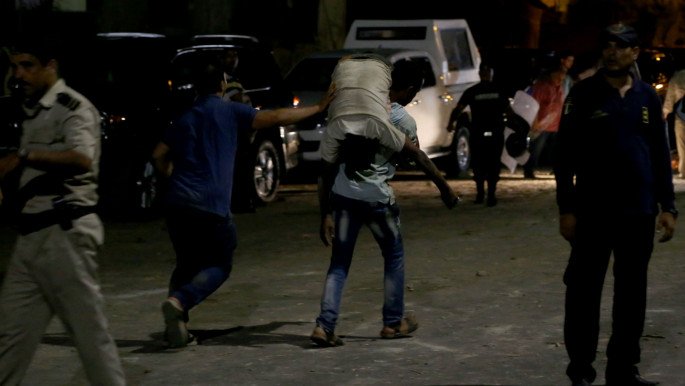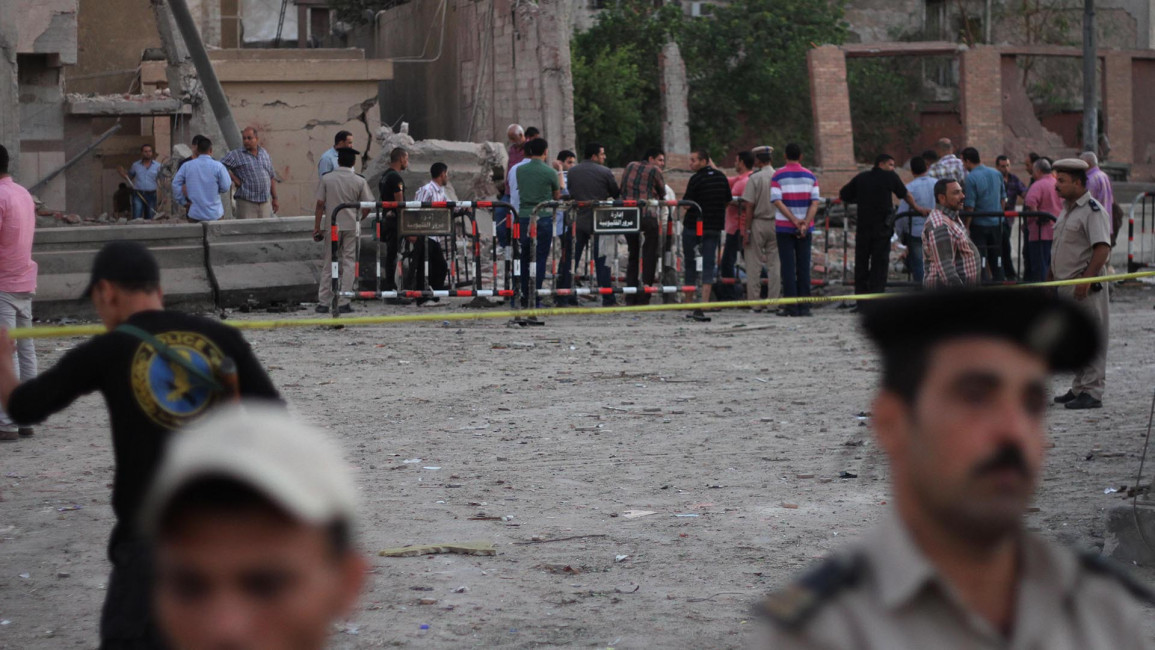IS affiliate in Egypt claims Cairo car bomb attack
IS affiliate in Egypt claims Cairo car bomb attack
A statement issued by the Islamic State affiliate in Egypt has claimed responsibility for the massive car bomb that struck a security building in Cairo, wounding at least 29 people.
3 min read
Militantsin Sinai, allied to IS claimed responsibility for several attacks on security forces. [Getty]
Wilayat Sinai, an Islamic State (IS) affiliate in Egypt, has issued a statement claiming responsibility for a massive car bomb explosion that targetd an Egyptian state security building and courthouse early on Thursday, wounding at least 29 people.
In its statement, the Sinai-based militant group (formerly known as Ansar Beit al-Maqdis) said the attack came in retaliation for the six men executed last may in what has become known as the Arab Sharkas case, referring to them as "martyrs".
They had been accused of being members of Ansar Beit al-Maqdis and killing Egyptian soldiers, as well as being involved in a shoot-out with police.
Their execution resulted in an outpouring of anger and a call to retaliation by a Muslim Brotherhood spokesman.
 |
|
| The attack left at least 29 wounded [AAAJ] |
Egyptian security officials told al-Araby al-Jadeed that according to initial reports, the group that targeted the state security building this morning was the same that targeted the Italian consulate in downtown Cairo last month.
Security sources who inspected the site of the blast in Shubra al-Khaima, a Cairo suburb, said there was a burned-out vehicle and crater.
Comments on Twitter indicated the blast, which heavily damaged the face of the state security building, was heard in several parts of the Egyptian capital.
Shopkeeper Mohamed Ali said he saw a man park a vehicle that exploded after he stepped away from it.
Militants based in Sinai, who support the Islamic State group that controls parts of Iraq and Syria and have a presence in Egypt's neighbor Libya, have previously claimed responsibility for attacks on security forces.
Hundreds of soldiers and police have been killed since the army toppled Islamist President Mohamed Mursi in 2013 after mass protests against his rule.
 |
|
| The blast heavily damaged the face of the state security building [AAAJ] |
Egyptian authorities have mounted the toughest security crackdown against militants in the country's history, drawing criticism from human rights groups who accuse the government of stifling dissent.
This month Sisi approved an anti-terrorism law that sets up special courts and protects its enforcers in the face of a two-year-long Islamist insurgency that aims to topple his government.
The law has come under fire from human rights groups that accuse Sisi of rolling back freedoms won in the 2011 uprising that toppled Hosni Mubarak.



